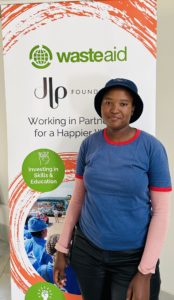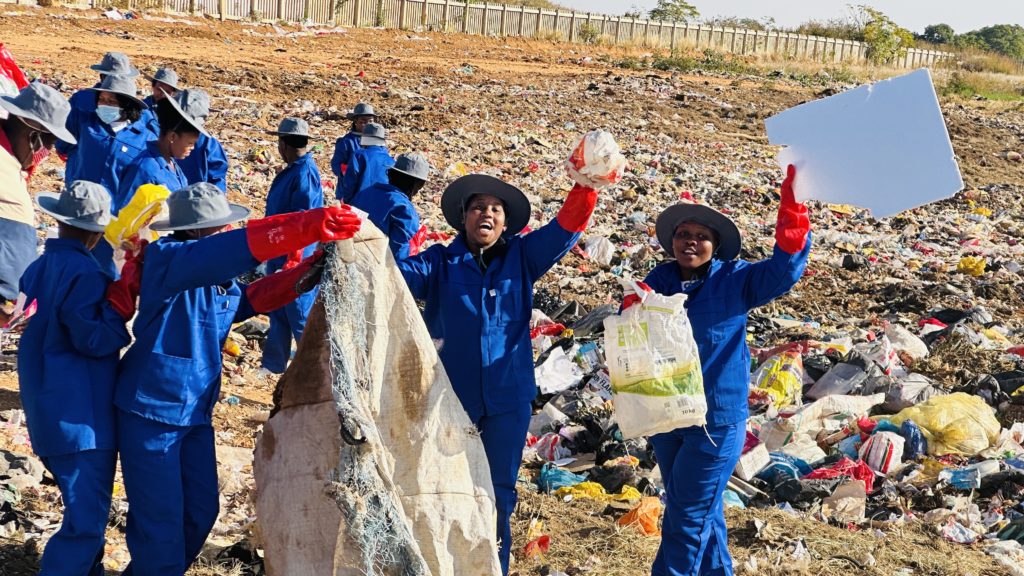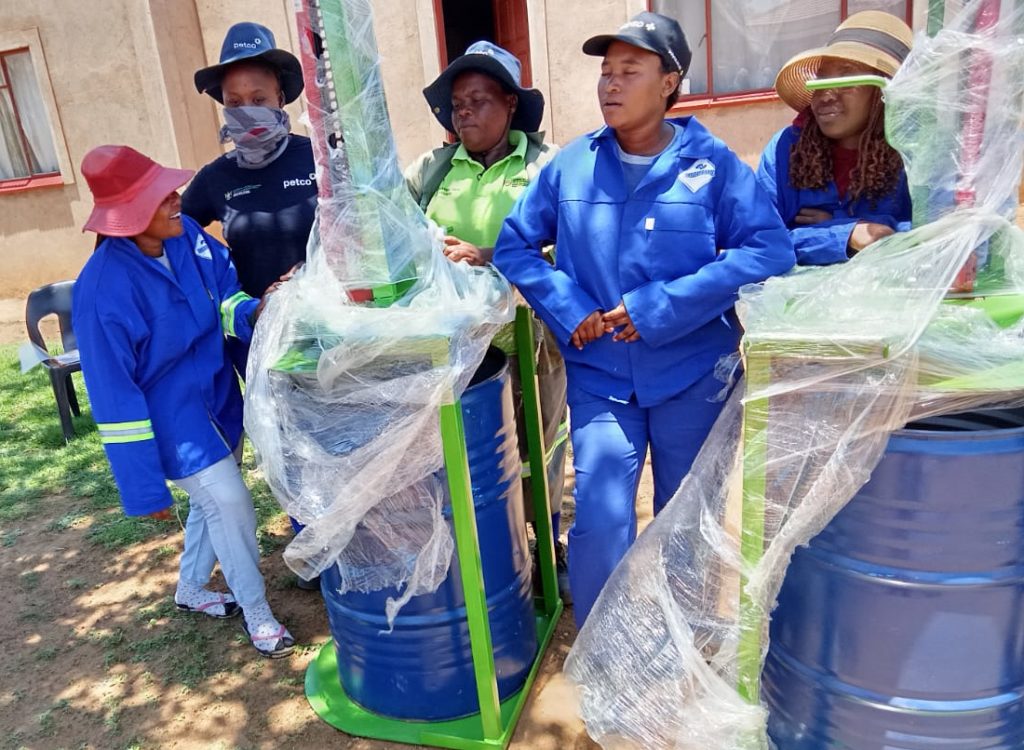Building a Brighter Future
Our project, “Supporting the Economic Empowerment of Youth in the Waste Value Chain in Rural South Africa,” aims to help create dignified and safe livelihoods for young people working as informal waste collectors in rural Mpumalanga. Funded by the John Lewis Partnership Foundation, the project is a groundbreaking initiative designed to support the economic empowerment of 100 young waste collectors in the Thembisile Hani District Municipality.
This case study explores the journey of Tebogo Matsila, who has joined forces with five other waste collectors to form a cooperative thanks to the training she received from WasteAid. By equipping young waste collectors with essential business, waste management, and upcycling skills—along with resources such as PPE and trolleys—WasteAid is not only improving livelihoods but also fostering safer, cleaner communities.
Tebogo’s Transformation Journey through Waste Collection
 Tebogo Matsila, a 25-year-old from Tweefontein in rural Mpumalanga, South Africa, faced significant challenges when she became pregnant during high school and had to leave school to care for her child.
Tebogo Matsila, a 25-year-old from Tweefontein in rural Mpumalanga, South Africa, faced significant challenges when she became pregnant during high school and had to leave school to care for her child.
Determined to build a better future, she returned to school in 2023 and sought ways to support her family. Recognising that the government grant she received for her child wasn’t enough to meet their basic needs, Tebogo started collecting recyclable waste to earn extra income.
When Tebogo started, it took her a long time to fill a maize-meal bag with recyclables. This meant she could only make sales only every three to four months, earning less than £21 each time.
In 2024 Tebogo joined WasteAid’s First Step Waste Recovery Programme to learn strategies to help her collect more recyclable waste and increase her income. As a result of the programme, Tebogo has joined forces with five other participants to form an official cooperative.
Thanks to the training, mentorship, resources (including bulk bags, trolleys, storage and collection spaces), and engagements with their local community, the cooperative’s collections have grown significantly. Key factors contributing to this growth include the strategies implemented during training; adding new waste streams like paper and approaching new clients to increase their volumes collected.
“Before, I didn’t take this work seriously. But now I have joined forces with others. This is just the beginning for us.”
Towards the end of the programme, the group had collected over 5 tonnes of recyclables; diverting it from open dumping and burning in the community and turning it into opportunities to lift themselves out of poverty. This led to remarkable income improvements for the group, from £128 every 3 months to just below £245 per month, successfully raising their individual incomes above the global poverty line.
This success has inspired the cooperative to set more ambitious goals, such as saving up for a weighing scale and buying more trolleys to support their work.
During the mentorship phase of the project the group was guided through the cooperative registration process by WasteAid’s cooperative mentor, who explained, “We’re taking them through tax clearances, opening a bank account and registering with the central supply database system so they will be able to do business with government. We will continue to mentor them to form their own profile and business plan; now they can transact as a legal entity.” – Aaron Mathe, Cooperative Expert
“The training taught me how to see recycling as a real business, and new ways of managing operations. Thank you for an opportunity to improve me and my family’s life.” Tebogo
Tebogos’s group now aims to grow their cooperative’s membership and boost their collective income. Their immediate objective is to purchase a scale to accurately weigh recyclables before selling them to the buy-back centre, ensuring they receive fair compensation.
In the long term, they hope to secure funding to establish a mini buy-back centre within their community, fostering local economic development.


